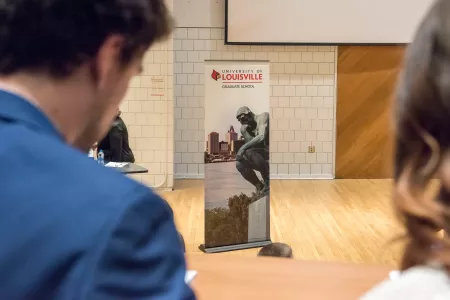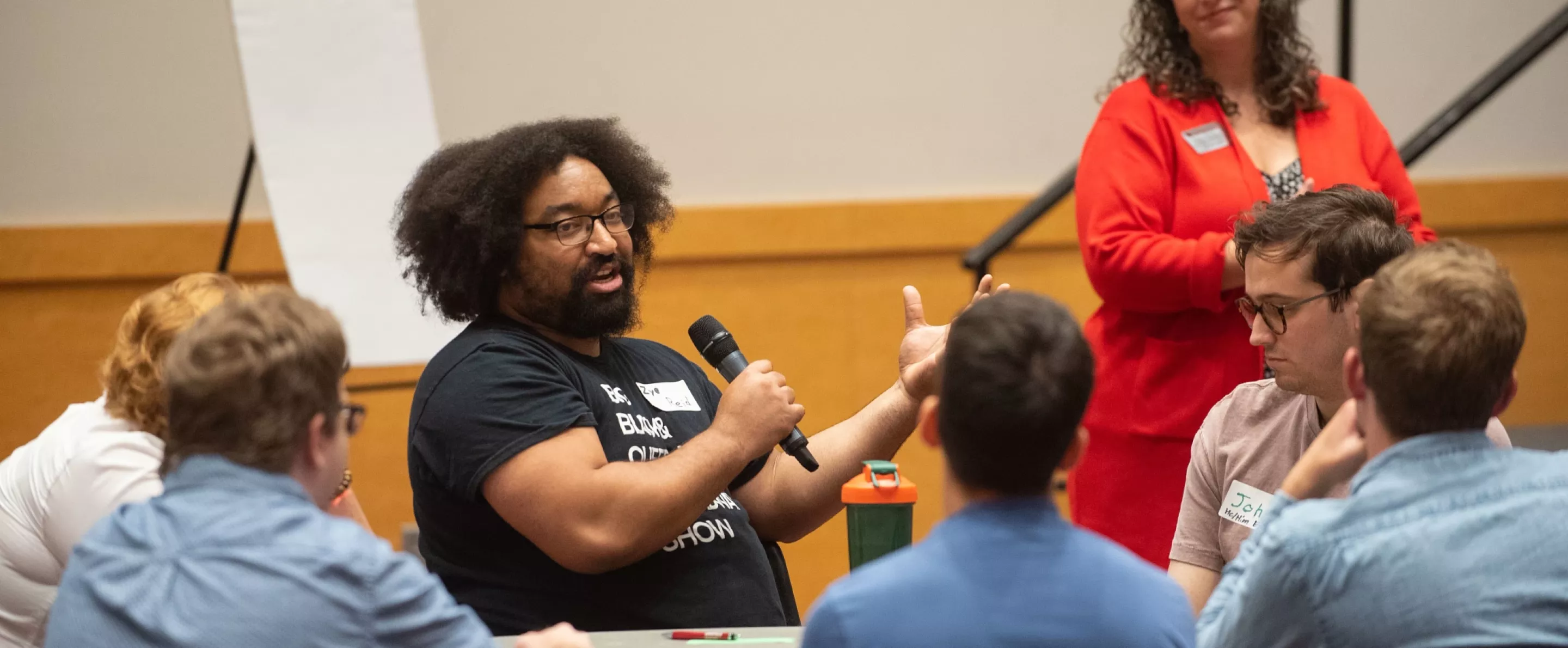No matter your career path, professional development is not only an implicit expectation of your graduate education, but also an essential element of your success as you enter graduate school, move through your education and move on in your career. Moreover, in today's climate particularly, it is vital that you are flexible and adaptable in considering your career path. While you may have a PLAN A for your career, you should consider a PLAN B and C.

At UofL, the Graduate School promotes professional development through something we call PLAN. PLAN helps students take charge of their own learning and development. We want you to have a plan for your professional development, but actively plan it. So, how does this happen?
Assess yourself and your skills early and often. Then, work on your gaps and increase your strengths by learning and practicing. Finally, reflect on this work and learn to communicate it effectively as you move on the job market.
Getting Started
1
What’s Your Career Path?
If you already know you’re planning for an academic career path, that’s great. Maybe you know you’re interested in a non-academic career path or even a career that is in higher education but not a traditional faculty member position. Or perhaps you’d consider both and aren’t really sure. Regardless, you’ll want to identify a few areas in which to focus, so you know where you’d like to be.
2
Self-Assess
Once you have a sense of where you’re going, you need to determine how you get there. What knowledge, skills, and experiences are you missing or do you need to reinforce? Complete the self-assessment to learn which areas of professional development you should focus on first. This should be directed by your general career path.
Three great options for self-assessment can be found at myIDP Science Careers, ImaginePhD and UofL’s Career Center.
Moving Through
1
Plan
Now that you have a sense of what you need to learn, what skills you need to develop, and what experiences you need to gain, it’s time to make a PLAN for your professional development. Outline your semesters, utilize your mentors and identify ways to participate with your department, at UofL, in the community and beyond.
2
Identify Opportunities
While you’ll be able to identify opportunities in many locations, the Graduate School has a wide range of free, interdisciplinary opportunities designed to help you fill in the gaps or reinforce areas of professional development.
Learn more about these opportunities. aboutMoving Forward
1
Reflect
During your graduate education, you should continue to actively reassess your growth and development toward your goals and revise your PLAN as necessary. As such, you should be regularly reflecting on your experiences. These reflections will help you narrow or expand your professional interests, add to your career materials and prepare for interviews. These are the first steps of career exploration.
2
Communicate
As you move towards your next career step, it will be time to combine all parts of your graduate education and professional development together. You’ll want to work early and often on career development and job exploration, identify any needed resources, and practice and refine your communication skills of who you are and where you want to go.

